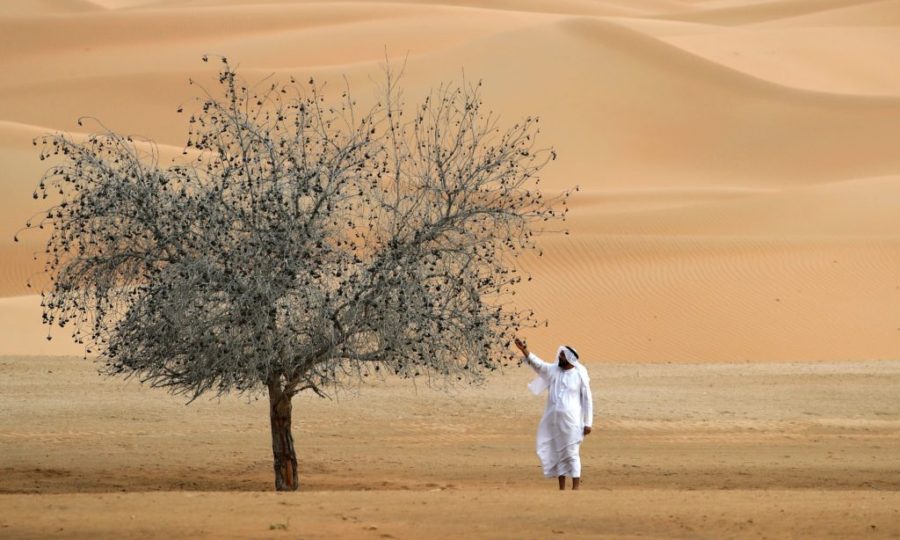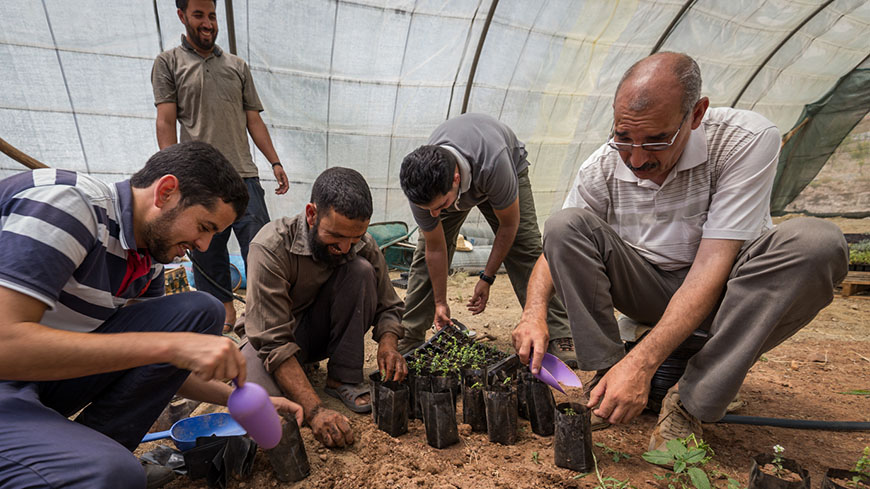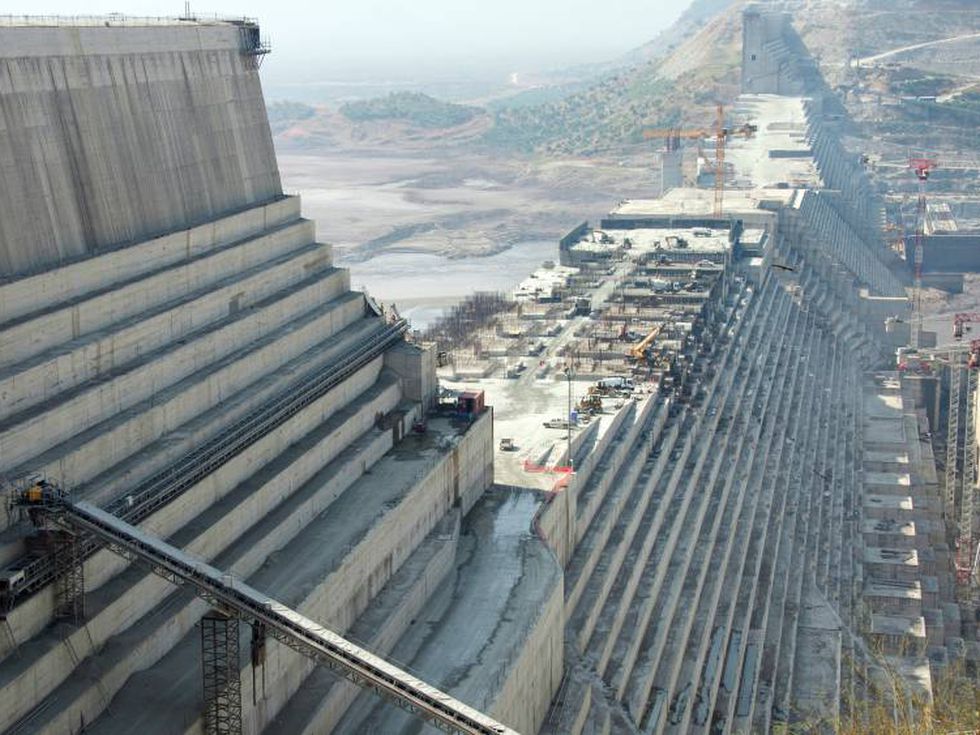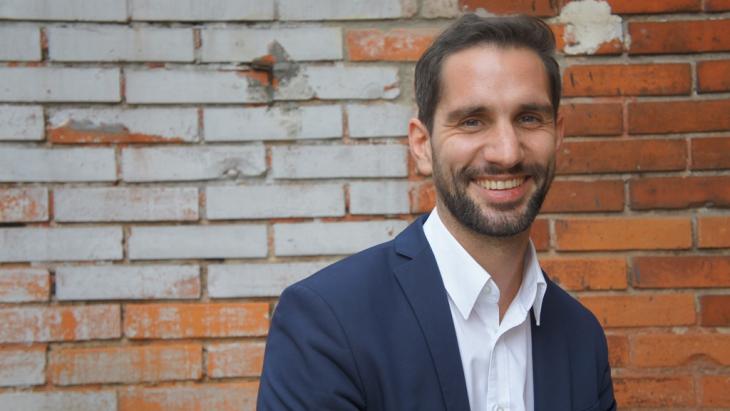
How are countries in the Middle East coping with climate change?
Climate change, water scarcity and declining oil revenues: The Middle East and North Africa face enormous environmental challenges. Christopher Resch spoke about this with political scientist Tobias Zumbreigel, who studies how the region is addressing these pressing issues.
Many experts believe that the Middle East and North Africa will be among the regions most affected by climate change. At the same time, according to your research, the governments of the region are not addressing this problem. Why is this so?
– There are many reasons. Countries such as Libya, Iraq, Syria and Yemen are involved in military conflicts, in some there are civil wars. But also, in general, in the region, environmental awareness is quite low, both at the political level and among the population.
According to your research, most of the positive examples come from North Africa. What is happening there?
– Two countries, Morocco and Tunisia, have launched a number of environmental policy and sustainable development initiatives in recent years. In Tunisia, environmental issues have also played a role in fundamental political transformations since 2011, when the government sought to win over environmental activists. And Morocco is a good illustration of how to build a positive green reputation. For example, back in 2016, the government decided to ban plastic bags.

Morocco is a good illustration of how to build a positive green reputation / Source: thegef.org
How are things in the Gulf states?
– Here the rulers are also taking steps in this direction. Qatar, for example, long before Morocco had the idea to enhance its international image by hosting the 2012 UN Climate Change Conference in Doha.
Other countries in the region are experiencing basic problems. In the Levant, the Fertile Crescent, as well as in Egypt, water scarcity is a major problem. The region is actually rich in water reserves, as evidenced by the existence of developed agriculture. But due to factors such as global warming, rising sea levels, salinization and soil pollution, the area is now also facing water security challenges.
Water has always been a source of conflict here.
– Indeed, ongoing conflicts over water resources are a reality in the region. Tensions over the construction of the Khidasa dam in Ethiopia are currently at their height, and the conflict is heating up in the media. Back in the 1970s, Boutros Boutros-Ghali, who would later become UN Secretary General, said the next war in the Middle East would be over water. Now the rhetorical saber-rattling of Cairo, which fears the dam will deplete Egypt’s water resources and Addis Ababa, is getting louder and the controversy could spark a regional crisis. I believe that environmental destruction and climate change are likely to exacerbate such situations in the future.

Tensions around the construction of the Khidasa dam in Ethiopia are now reaching their climax, and the conflict is heating up in the media / Source: Gioia Forster / Getty
Let’s move from geopolitics to social level: have there been any massive demonstrations related to environmental issues?
– In recent years, environmental rhetoric has played only a secondary role in protest movements. The main focus was on social injustice, the fight against autocratic leadership and corruption.
Why are environmental organizations founded by citizens not credible in the region?
– Firstly, the state always considers such non-governmental organizations as a challenge, as competitors that threaten the stability and legitimacy of the government. On the other hand, the general public is also not inclined to make life easier for such organizations. People simply do not see the need for non-governmental organizations.
In your research, you suggest that having abundant resources exacerbates authoritarian practices. What do you mean by this?
It is often argued that the proceeds from the sale of fossil fuels can be used to provide generous social gifts to the public, such as free medical care. Some wealthy Gulf countries have no taxes. But this leads to the fact that authoritarian regimes believe that as long as you do not pay taxes, you cannot claim representation. At the same time, one-time charitable payments can be used to calm protests, as in the Gulf monarchies in 2011. However, the role of the theory of the rentier state should not be exaggerated. Eventually, even the wealthy monarchies of the Persian Gulf began to impose taxes – sales tax, for example.

Tobias Zumbreigel / Source: en.qantara.de
Is there any hope that the economic crisis caused by the coronavirus epidemic will force countries in the region to invest in green technologies?
– Of course, there are initiatives aimed at moving away from the production of fossil energy, but only at the national level. The resource-rich countries of the region still want to extract, produce and, above all, sell oil, not least to maintain their economic and therefore political stability. Despite the green initiatives that seem promising on paper, all of these countries are still developing their oil and gas infrastructure, even expanding it. The Saudis are determined to extract the last drop of oil from their fields …
Islamosphere
Tobias Zumbreigel is a member of the Department of Middle East Politics and Society at Friedrich-Alexander University Erlangen-Nuremberg (2015-2018) in Erlangen (Germany).

